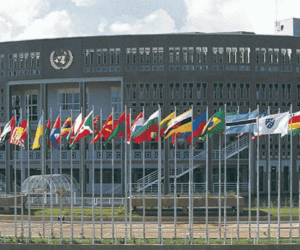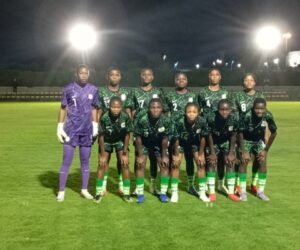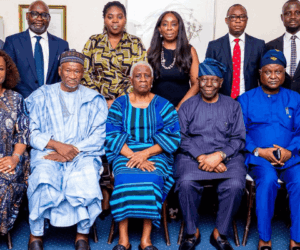Nigeria’s ageing population is not a burden but a valuable driver of economic growth, according to Emem Omokaro, former pioneer Director-General of the National Senior Citizens Centre (NSCC). Speaking in an exclusive interview with BusinessDay, the gerontology expert argued that older persons should be seen as assets in the country’s development strategy, rather than welfare cases.
Omokaro, who now serves as Executive Chairman of the Dave Omokaro Foundation, host of the UN International Institute on Ageing, Malta, Sub-Saharan Africa Satellite Centre, stated that the prevailing notion of ageing as purely a social welfare issue is outdated.
In this interview with Blessing Ojochenemi Onje in Abuja, she noted that older citizens can contribute significantly to economic productivity if properly engaged, citing the “silver economy” as a proven model in advanced economies. Excerpts…
You have often argued that ageing is not just a welfare issue but an economic sector. Can you elaborate on what this means for Nigeria’s national development strategy?
The prevailing perception, shared by many people, including policymakers, planners, and implementers is that older persons are largely disengaged from society. Because many are retired, and a significant number live in poverty, especially in rural areas, aging is often seen as having little or no connection to social development or economic growth. As a result, older people are too often viewed as welfare cases, a burden, or a cost rather than as an investment.
But this perception is far from the truth. The older population is highly diverse. Many continue to engage actively in society, with varying levels of socioeconomic status. Even those who are poor are often victims of long-standing systemic discrimination, yet they still contribute meaningfully within their communities.
An inclusive social development policy that addresses the multisectoral challenges older people face can also unlock the multisectoral opportunities they present. For example, when older persons who are retired are engaged for their expertise, skills, and institutional memory, and when structured programs, like those developed by the National Senior Citizens Center create work schemes for them to earn or supplement income, the result is an economic boost, not a drain.
Similarly, when society acknowledges the frailty that comes with aging and invests in long-term care systems, including the training and certification of caregivers, it fosters the growth of a geriatric social care economy. Countries that have embraced such models are already reaping the benefits of what is now called the silver economy.
Can you put a figure to this sector in terms of GDP contribution to the economy?
Let me cite the International Labour Organization (ILO) here: a 1% investment of GDP in the care economy, whether in training and certifying caregivers, manufacturing geriatric products, establishing senior citizens’ centers, employing a range of caregivers, accrediting training providers, or opening training institutions to engage interested young people yields greater dividends than the construction sector. Beyond its economic impact, such an investment also strongly benefits women and girls.
The reason is simple: although women and girls have traditionally played a major role in care work, their contributions remain largely unrecognised because the sector is neither formally classified nor properly certified. Yet the need for care in Nigeria is immense. According to the National Bureau of Statistics’ 2019 Living Standards Survey, about 2.1 million people in the country have serious challenges with self-care. Of these, roughly 1.2 million are unable to carry out basic activities of daily living without assistance. Most hospitalisations fall within this age group, showing just how critical the demand for care really is.
This situation reveals a massive gap—the absence of a structured and certified care industry in Nigeria. In other parts of the world, care has already been developed into a recognised industry with standards, systems, and jobs. Imagine the possibilities if every state government in Nigeria domesticated the National Senior Citizens Center Act and invested in geriatric social care. If teaching hospitals, universities, and private facilities were accredited as training providers, thousands of young people across the country could graduate with National Skills Qualification (NSQ) certifications, regulated by the NBTE specifically in the care industry.
Even more transformative would be the creation of geriatric social care extension services. With these, certified caregivers could be deployed directly into communities, making regular visits, say, twice a week to households with older persons. Paid for their services, these caregivers would not only ease the burden on families but also stimulate local economies. The impact of such an initiative would be enormous: job creation for youth, recognition and empowerment of women, improved quality of life for older persons, and the growth of a sustainable care economy.
How can Nigeria move away from viewing care for the elderly as palliative to recognising it as a core component of the national economy and employment generation?
I speak with excitement because Nigeria has truly come a long way. The country is gradually moving away from seeing older persons as a distraction from core social development and is beginning to recognise their value as contributors. A key milestone in this journey is the National Senior Citizens Center Act, which established the National Senior Citizens Center.
The policy foundation of this Act is significant. If you read through its provisions, it becomes clear that it was designed with a mindset that acknowledges the immense value of older persons. It emphasises providing training opportunities, creating work schemes that keep older persons engaged in productive activities, and enabling them to earn or supplement their income. It also covers recreation, sports, research, health, and social programs showing a holistic approach to aging.
However, while this progress is commendable at the federal level, its true impact depends on adoption across the states. For the framework to deliver real change, subnational governments must domesticate the policy. As of now, about eight states have taken this step. With more states embracing this inclusive social development framework, older persons will increasingly find themselves better integrated into the nation’s development process.
How critical is the integration of gerontology into Nigeria’s higher education system, and what long-term impact do you foresee from the benchmarks and standards you helped develop?
You see, beyond institutional and policy frameworks, without human capacity you really can’t go far. It’s true. Human resource development is especially critical in the field of aging, a field that is still very new to many in developing countries. In fact, even the words gerontology and geriatrics sound unfamiliar to most people. So, while we may have a policy on aging and even a national development plan, the question becomes: who really understands these issues well enough to implement them? Too often, the answer is: very few. And that is a real challenge.
That is why, between 2011 and 2016, I was privileged to serve first as a visiting scholar and later as a lead scholar at the National Universities Commission (NUC), thanks to my academic interest in aging. In that role, I became the focal person for advancing gerontology in Nigeria. We developed the national benchmark and minimum standards that enabled universities interested in the field to introduce formal postgraduate programs. Gerontology, by its nature, is multi-sectoral and multi-disciplinary, open to entrants from law, nursing, adult education, sociology, medicine, and many other fields.
This development was critical for Nigeria’s current work in aging. Alongside this, the Dave Omokaro Foundation also played a key role, offering short courses and masterclasses on aging policy, planning, and implementation; gerontology and geriatrics; aging legislation; and global policy frameworks. These programs built capacity within the public service and civil service, equipping professionals with practical knowledge of aging policy and programs.
I am pleased to say that during my time at NUC, I worked with 11 federal universities to introduce gerontology into their curricula. About 24 individuals were sent abroad for specialised training, earning certificates in ageing studies. They returned and now teach in universities, with some institutions securing Senate approval to formally run gerontology programs.
But beyond gerontology alone, other related disciplines are equally important, geriatric social work, medical sociology, geriatrics itself, and even elder law.
Could you explain how the National Skills Qualification framework can be used to mainstream care-giving as a professional career path in Nigeria?
One sector I am particularly passionate about and which became a major focus of my work is the care of older persons. Caregiving is not just compassion; it is a skill. And for it to be recognised as such, there must be a formal system of certification and quality assurance.
When I was in office, we recognised the importance of developing this framework. The National Board for Technical Education (NBTE), being the regulator of skills and vocational education in Nigeria, became a key partner. Through a Memorandum of Understanding, extensive discussions, presentations, and stakeholder engagements, we succeeded in integrating caregiving into the Nigerian Skills Qualification Framework (NSQF).
This meant a few important things which include training providers for caregiving had to be identified and accredited, these providers had to meet NBTE’s regulatory standards. And the National Senior Citizens Centre (NSCC) became the awarding body, which required us to build our own institutional capacity to accredit providers.
To drive this forward, we established the Geriatric Social Care Skills Sector Council, which became the backbone of the Geriatric Social Care Quality Assurance System. Over two years, we worked tirelessly to meet all criteria, and before I left office, we had already accredited training providers, including federal university teaching hospitals who had begun training and certifying caregivers.
My joy is that Nigeria now has the foundation for what should grow into a major industry, the care economy. It is vast and holds huge potential, especially for women and girls who have long been in this sector but remained unrecognised. Many of them, often called housekeepers or house helps, were essentially caregivers without formal recognition. Now, with this framework, their work can be professionalised and their rights protected.
As I step back into the Dave Omokoro Foundation as Executive Chair, one of our foremost priorities is to build capacity for the care economy. Our focus is not on direct training that is the role of accredited providers, but on strengthening policy. Nigeria urgently needs a National Care Policy and a Plan of Action on Care. This is not only for the federal government but also for states and local communities.
Your journey into gerontology began with a personal experience delivering packages to older parents in rural Nigeria. How did those early encounters shape your lifelong mission?
I have always said and I’ll say it again, that ageing actually found me. Gerontology found me, really. At the time, I didn’t even know such a course existed. The dots only began to connect after I left academics for a while and went into fashion design.
During that period, I started travelling abroad for photo shoots and fashion shows, trying to break into the international market, which I did. But what changed my path were the encounters I had with friends who had left Nigeria. Whenever I travelled, they would send me back to their villages to check on their parents.
Those trips left a lasting impression. What I saw was heartbreaking, older parents looking completely neglected. One particular case still stands out: a father who was gravely ill, with swollen legs, struggling to breathe, living in a collapsing house. He had many children, yet none were around to care for him. There was no emergency response system, no community support. I had to step in, taking him to the city for help, and the experience stayed with me. It made me ask: Is this really the lot of older people? What happens if no one is there to intervene?
So, when I returned to pursue my PhD, I chose to make ageing my focus. My dissertation interrogated the quality of care that adult children provide to their ageing parents, especially in a context where there was no policy, no agency, no framework for older persons beyond pensions. My central question was: If care depends entirely on families, how strong is that care? Are families truly able to meet the needs of their older members?
That research went on to win the National Doctoral Thesis Award under the National Universities Commission (NUC), selected as the best in the social sciences across all universities in Nigeria. At the time, I didn’t even know such an award existed. The Executive Secretary of NUC was deeply interested in my findings, and when the award was presented at Usmanu Danfodiyo University, Sokoto, all the top academics were present, deans, supervisors, and representatives from nominated universities across 13 categories.
Each awardee had 30 minutes to present their thesis, and when I shared mine, it immediately became the talk of the day. No one could escape its relevance, everyone either had ageing parents, was ageing themselves, or was caring for someone who was. The Executive Secretary noted that this was exactly why the award existed: to encourage PhD candidates not just to pick random topics, but to pursue research that offers solutions, responds to Nigeria’s realities, and can be transformative.
That recognition with NUC marked the beginning of my journey in ageing and gerontology. And truly, that’s how I found my life’s work, or rather, how it found me.
If you have five minutes with Nigeria’s President or a state governor, what would be your elevator pitch on why ageing should be a core national policy and investment area?
Oh my God, if I had just five minutes with President Bola Tinubu, this is what I would say. I would tell him that the geriatric social care sector is not just a social service—it is an economic sector. Globally, it is called the silver economy, just as we have the blue economy for marine resources. And beyond geriatric care, the care sector includes childcare, care for persons with special needs, and disability care. Altogether, this forms what should be called a national care economy.
I would urge him to establish an institutional policy framework and systems that recognise care as an industry, complete with quality assurance, certification, licensing, and regulation. This requires a coordinating office that can bring together all the relevant sectors. We already have the National Board for Technical Education (NBTE), which provides technical and vocational training in fields like engineering and carpentry. But when I tried to introduce geriatric social care skills, there was little interest. Yet NBTE understands this vision, we have even worked with them on aspects of it.
That is why I would say: Mr. President, please consider caregiving as a skill, because in other parts of the world it is a recognised industry. Nigeria can build this industry too. It can absorb thousands of young women and men, moving caregiving from the informal space into the formal economy, backed by certification and standardisation. We have already started laying the foundation at the NSCC. Please, let this become a national priority. That is what I would tell him.









